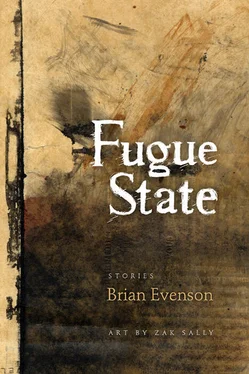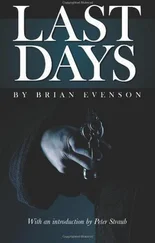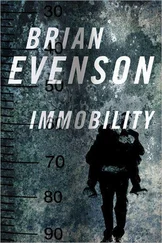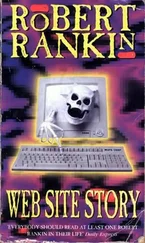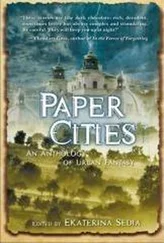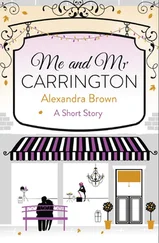“You have to stop.”
Anders took out his pen, scribbled on the back of a coaster. “Now we hire some hack out of New Jersey, give him the titles and have him write the fuckers.”
“Some Swedish guy?”
Anders shrugged. “Doesn’t make any difference. Your job is saved, Koss,” he said, “and all it cost you was brunch. I’m a genius. Get the bill.”
III.
It was a process that, once begun, Kossweiller didn’t know how to stop. Suddenly he was the editor of a fake Swedish mystery series. He and Anders met with Cinchy and H. H., who were instantly very excited. There was even talk of doing graphic-novelizations under the moniker “A Bjornographic Book.” Anders came to this meeting with the name of the person who would write them, a sixty-eight-year-old Jewish lady living in Jersey City whom he’d used in the past — for The Secret Life of Housewives, among other things. Cinchy, boss of the people, shook Koss’s hand.
“I didn’t think you could pull it off, Karse,” said Cinchy. “But you did. You’ve turned over a new leaf. You must be very proud.”
Kossweiller, as quickly as he decently could, took his hand back and left the room.
Anders had been right. The first Verenson book (First Bjorn Child) was a hit, and the second (Bjorn Again), published six months later, was even bigger. The most disturbing thing, Kossweiller felt, was that two men could sit down over drinks and in a few moments create a best-selling series. It didn’t matter who wrote it, it didn’t really matter how good it was; all that mattered was concept. Or maybe it did matter that it wasn’t too good. And he could tell from the calls he got from editors at other houses that any of them would have been happy to have Bjorn Verenson on their list, even the editors he had considered literary. It was depressing to think about.
True, it wouldn’t have been possible without H. H. and Cinchy to pump money into the books, but they got back a lot more than they had pumped in.
There was the matter, too, of H. H. Anders kept coming by to remind him he had promised her dinner.
“Actually, it was you that promised her dinner,” said Kossweiller.
“But on your behalf, Koss. It was all for you. You don’t want to go?”
“It just seems awkward,” he said.
“Ah,” said Anders. “It’ll be fine.”
But it was not fine. When he finally went, Kossweiller felt that they had nothing to say to each other. Or rather he had nothing to say to her. She spent more than an hour talking about book packaging, Kossweiller nodding and making brief noncommittal sounds. And then, suddenly, at the end of the date she managed somehow to coax him out of the car and up to her door and then pinned him between the door and her torso. It was all he could do to extricate himself, and it was clear the next day that listening to herself talk about packaging was her idea of a wonderful time, that she wanted to see him again as soon as possible.
I hate my life, he thought.
Before, editing had been his life. He had had his small Chelsea apartment to go home to, alone. A few friends he saw, sometimes sexually, and occasional distractions. It had been enough. Now, editing had become a problem, and, in addition, he had no life.
The sixty-eight-year-old Jerseyite writing the Verenson books liked to call him on the telephone and talk in a deep voice with a fake Swedish accent. She wasn’t very good at it. It drove him crazy. The third Verenson book, Bjorn Free, he could barely stand to read, let alone edit. It was published and was a tremendous success. I have no soul, he kept thinking.
With the fourth Verenson book, he went to Cinchy, asking him if he could do something literary for a change.
“Literary?” asked Cinchy. “Why would you want to do something like that?”
He tried to explain in a way that Cinchy would accept. It was not that he didn’t want to do the Bjorn books, just that now that he had the cake he wanted to put the icing on it.
“What cake?” said Cinchy. “What icing? What are you talking about?”
“But,” said Kossweiller, “that’s what you said, the icing, literature.”
“Karse,” he said. “Why can’t you be happy with what you have? Why are you always trying to ruin yourself?” He took him by the shoulders, led him to the door. “I can’t have my best mystery editor slumming in lit now, can I?”
He was on his way home when it started to rain. At first it wasn’t bad, a light drizzle, but soon he was the only one still walking on the street, everyone else huddling under awnings. Soon he was freezing cold. Perfect, he thought. He left the street, went into the first coffee shop he saw.
He shook off in the entryway, then ordered a large coffee at the counter. He held it with both hands to warm them. Looking around for a place to sit, he spied Ralph Bubber. The man was staring at him but immediately looked away when he saw Kossweiller had noticed.
Kossweiller went over to his table, stood above him.
“Bubber,” he said.
“Kossweiller,” said Bubber. “What a pleasure to see you.”
“I have a bone to pick with you,” said Kossweiller, and sat down. He shrugged his coat off his shoulders. He took a drink of his coffee. Bubber watched him apprehensively, saying nothing. “Dolls?” Kossweiller finally said. “Why me?”
“I guess I do owe you an apology,” said Bubber.
“Why did you do it?” asked Kossweiller.
“You’d never bought anything from me before,” he said, “never treated me with anything but contempt, and suddenly you expect me to do you a favor?” Bubber shrugged. “That, and I hate Darba. Mostly that, actually. Besides, it doesn’t seem to have worked out too badly for you.”
“My life is hell. Why do you hate Darba?”
“Ninety over ninety,” said Bubber. “He threatened me with that after the doll incident.”
“He threatened me with that too,” said Kossweiller. “What does it mean?”
“You don’t want to find out,” said Bubber. “It’s different for everybody. That’s the way Darba thinks, a very specific torture. I don’t know what it would mean for you. For me, I was told that to keep my job I had to eat ninety eggs over the course of ninety minutes and hold them all down. I hate eggs. He knew I hated eggs. Nobody can eat ninety eggs in ninety minutes. Cool Hand Luke could only do fifty. He fired me, but I managed to work it to get him fired as well. And there was the doll incident.” He gave a big, peeling smile. “Look at me now. All that did something to me. That was at MacMaster & Bates. I was his first ninety over ninety. No, second: Daniel Sherman, remember him?”
“Think so.”
“Mine was easy and quick. Darba told Danny he had to accept ninety books over a ninety-day period. Danny took it seriously, read like a madman, got the best work he could get, thinking his job depended on not only doing it but doing it right. He did it, too, came to Darba on day ninety with ninety drawn contracts ready for his signature. Darba tore up every one of those contracts, one by one, in front of him. You know what that can do to a man?”
“What happened to Sherman?”
“Dead now. Won’t go into that.”
“What about the doll incident?”
Bubber looked at him hard, then reached out and took his arm. Kossweiller flinched. “You still haven’t bought anything from me,” he said. “Not one fucking book. You don’t really like me. You’re not my friend. I told you my ninety over ninety, I don’t owe you anything. I don’t talk about my ninety over ninety with anyone. And besides, the doll incident would sound trivial to you. The only person it’s not trivial to is Darba.”
Читать дальше
